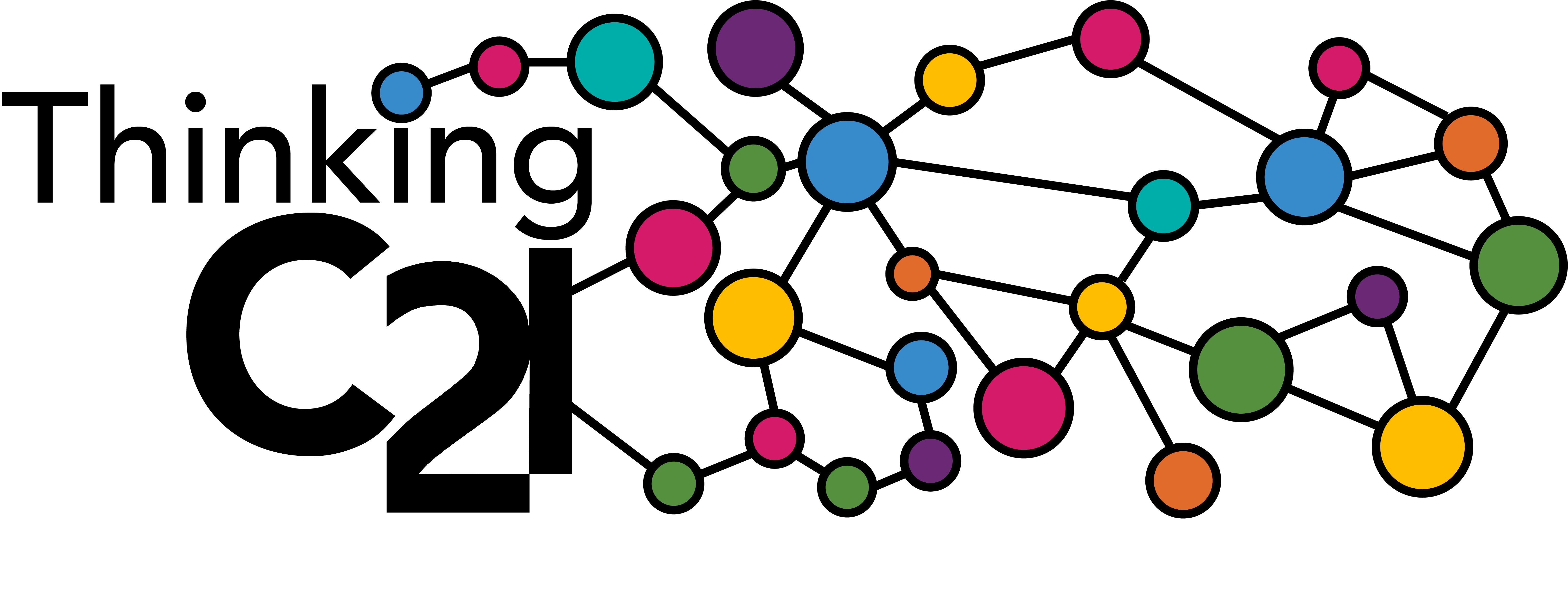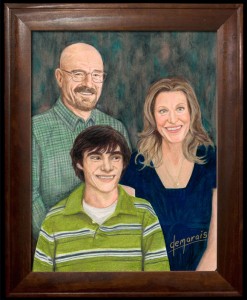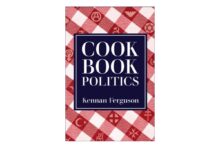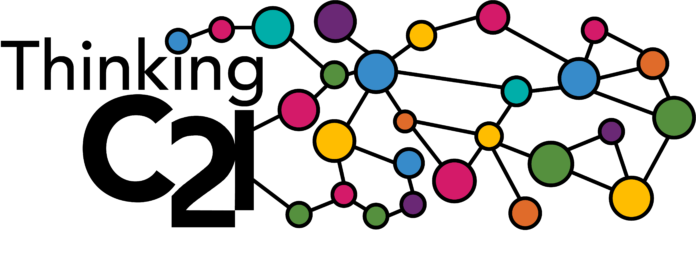[This post contains spoilers through season five of Breaking Bad.]
Finales are notoriously difficult to pull off, but in the last episode of AMC’s Breaking Bad, which ended its five-season run this past Sunday, a lot of things worked. The music was great, the acting was terrific, and the New Mexico desert fulfilled its role as television’s Western landscape for the disgruntled-middle-class. The episode was also beautifully shot: from the interior of the live-free-or-die car, to the dual perspective on Walt’s unobserved intrusion into the Schwartz’s house, to the last, overhead shot of Walt, as seen through the rafters of the infiltrated meth lab, these final camera angles were clearly in touch with a show that, all along, has asked us to question our own seemingly self-evident perspectives.
What was most satisfying, however, was that the episode took the “I’m doing it for my family” excuse and called it for the bullshit it has always been. There’s been some disagreement in the twitter-verse over whether Walt was sincere in his acknowledgement that he’s been driven by ego rather than altruism, but, for me, it’s the moment when Skyler refuses to hear Walt spout that nonsense one more time that embodies the show’s philosophical success. Throughout this show – and across our culture – “doing it for the family” is the reasoning that allows any action, no matter how abhorrent. It’s what Bonnie Honig (in a different context) identifies as those things in society (like the figure of the child, or the evil of terrorism, or the unqualifiable horror of catastrophe) with which you cannot disagree, that, when referenced, brings an end to conversation, and thus forestalls the disagreement that Honig argues is necessary for politics. And so, when it seems like Walt is about to launch once again into his “I am doing it for my family” routine, I, like Skyler, had had enough. After all, Uncle Jack’s posse (the familial neo-Nazi group who emerge as Walt’s nemesis in these last few episodes) is also all about the family. In fact, they are one of the most stable, functioning family units we see. They respect each other’s choices, they listen to each other and respond with thought and care, and they are willing to sacrifice money in defense of each other’s honor. Just think back to Uncle Jack’s discovery of Jesse’s recorded confession: Jack is not hesitant about killing Jesse over the fact that he named Todd in that confession, regardless of how economically useful Jesse might turn out to be. It’s only Todd’s reasoned intervention that sways Jack, an intervention that is successful because Jack does in fact treat his nephew’s opinions with respect. By placing the most extreme example of Walt’s go-to justification (family above all) in a group of obviously evil neo-Nazis (the ultimate example of those things on which we all must agree), the show calls bullshit on the reasoning that has been the force guiding Walt’s ego all along. His seeming acknowledgement that he did it all for himself, suggesting that it wasn’t really about family, obscures the myriad wrongs that the excuse of family has allowed to occur. But the moment before, when Skyler breaks in and stops the excuse we think is coming, signals the moment when biological family as the greatest good becomes something that can in fact be argued.
For me, that scene is the pinnacle of the ethical quandaries the show addressed over the course of its five seasons, but that is not where the show ends. Instead, Skyler, Walt Jr., and Holly all survive, Jesse is free, and Marie lives on, though once again outsmarted by Walt’s more clever maneuvers. The Nazi bad guys die, Jesse kills Todd, the ricin is in the tea, Hank’s burial location is finally revealed, and Walt dies on his own terms, killed by his own bullet. It all comes together like the perfect ending to a masterfully plotted novel.
And this is where Vince Gilligan loses me, just a bit. I don’t dislike the ending, exactly. It brings vengeance where it is due and it ties up almost every loose end. It is the anti-Sopranos of endings, the ending that The Shield could have done but (thankfully) didn’t. It is, above everything else, tidy. The tidiness undoubtedly works for some, but I like my finales with a little bit more mess to them. If this show has been about the transformation of good into bad, what we get in the finale is a bad guy who really isn’t so bad. He’s a guy who, while flawed, still provides for his family (despite their objections), still gets one over on the too-smart-people who wronged him (with the double-dig of emasculating Elliott with his too-small knife), takes out the Type-A boss lady, saves his partner, says good-bye to his wife and son, strokes his baby daughter’s head, and KILLS THE NAZIS. He even gets one over on cancer, dying by his own bullet, in the center of the meth lab where he was king.
And he’s right: he was good at it. More importantly, he liked it. He liked it a lot.
And we all liked it, too, the high school chemistry teacher who was too smart for his job but who showed up every day, the working man who, because of the impossibly high costs of health care, became a drug dealer. We liked seeing him outsmart the richer, and tougher, and meaner bad guys. Who wasn’t rooting for Walt’s trunk-rigged machine-gun apparatus to come out victorious? I sure was. The problem is, I didn’t want to be rooting for Walt at the end. I didn’t want him to be in control of these final details and I didn’t want to it to be so easy to support him. Sure, he dies, and his family is undoubtedly traumatized. But that’s not what we see. What we see is Jesse driving away to freedom; Skyler, not in jail, with her children alive, clutching onto that lottery ticket; Marie, bereaved, out-schemed by Walt once again, but surviving; and Walt, dying just a bit sooner than he would have already, righting all the wrongs he set out to do.
I didn’t want to feel like Walt was the hero. I wanted the finale to be daring, the way “Ozymandias” was daring. I wanted the show to rain the sins of the father onto the son in an irrevocable and undeniable way, for Jesse to break free independently of Walt, for Todd to get away and Marie to raise Holly, for Walt’s sense of his own mastery to be broken. Breaking Bad had the opportunity to challenge that illusory sense of control we all bring to the stories we love. Rather than confirming our knowledge of these characters, the show could have called us on our own over-identification with Walt, the way it did when Jesse was hiding under the car and Walt, rather than saving him, sentenced him to die. It could have challenged our sympathies and made us question our notions of the good and the bad. It could have been messier, and braver, less sure of its protagonist, and less complacent in assuring its audience that, at the end of the day, Walt wasn’t so bad, after all.
[Stephanie Youngblood is completing a dissertation on testimony and poetics in contemporary American literature in the English department at UW-Madison. She is currently a public humanities fellow for the public radio program To the Best of Our Knowledge.]






